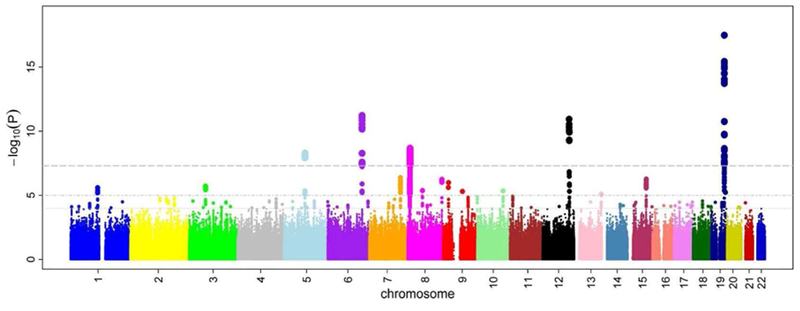New Insights into Genetic Risks for Alzheimer's Disease
Written on
Chapter 1: Understanding Alzheimer's Disease
Alzheimer's disease stands as the predominant type of dementia, representing about 60-70% of all dementia cases. Like many forms of dementia, Alzheimer's is a neurodegenerative disorder that leads to various cognitive, memory, and behavioral challenges. Characteristic molecular indicators of this condition include amyloid plaques and neurofibrillary tangles in the brain, although the exact relationship between these features and the disease remains uncertain.
Numerous genes have been identified that impact the likelihood of developing Alzheimer's disease. One of the most well-known is the APOE gene. Specifically, the APOE4 allele is significantly linked to an elevated risk of the disease, while the APOE2 variant appears to confer some protective benefits. Recently, researchers identified another protective variant: the APOE3 Christchurch (R136S) mutation. (See here for a comprehensive risk assessment of various APOE versions.)
However, genetics is just one piece of the puzzle. Some individuals with the APOE4 variant do not develop Alzheimer's, while others without this variant do. Lifestyle choices also play a crucial role in influencing the risk of Alzheimer's, irrespective of genetic factors. (Here are twelve strategies to lower your risk of dementia.)
Engaging in both physical and mental exercise can offer significant protection against Alzheimer's. Diet is equally important, with Japanese or Mediterranean-style diets showing a correlation with reduced Alzheimer’s risk. This connection between diet and brain health has led some researchers to investigate the potential of gut microbes or probiotics in preventing Alzheimer's.
Moreover, the impact of genes on lifestyle changes adds another layer of complexity. For instance, the benefits of physical activity are most pronounced in individuals carrying the APOE4 variant, suggesting that genetic factors can modulate the effectiveness of lifestyle interventions. Conversely, lifestyle choices may also influence gene regulation; environmental pollutants, for example, can result in epigenetic changes that might contribute to the onset of Alzheimer's disease.
Big Data: A Pathway to Genetic Understanding
Uncovering the genetic foundations of a complex condition like Alzheimer's is challenging due to the multitude of genes and their interactions involved, some of which may be quite rare. However, advancements in big data present new opportunities for discovery.
As genetic testing becomes more affordable and efficient, combined with the transition to electronic health records, a wealth of data has become available for analysis.

A recent genome-wide association study analyzed data from over 1.1 million individuals, integrating information from 13 different datasets to uncover new genetic variants linked to Alzheimer's disease. The researchers identified seven genes previously not associated with the disease in smaller studies:
- AGRN: Involved in protein degradation and synaptic formation
- TNIP1: Plays a role in immune response and inflammation regulation
- HAVCR2: Associated with immune response and inflammation
- TMEM106B: Important for brain cell maintenance, also relevant for frontotemporal dementia
- GRN: Likely involved in waste management in brain and immune cells, also relevant for frontotemporal dementia
- NTN5: Plays a role in brain cell formation
- LILRB2: Regulates inflammatory responses
The authors of this study examined the activity of these genes in various tissues and cell types, particularly noting that they are most active in immune cells and microglia. While microglia do not transmit electrical signals like neurons, they are essential for maintaining brain health, clearing away plaques, damaged neurons, and pathogens. The aging of microglia is thought to contribute to the complexities of Alzheimer's pathology.
It's important to note that the majority of the data analyzed came from individuals of European descent, indicating a need for more diverse future studies.
In conclusion, this research provides genetic support for the involvement of immune cells and microglia in late-onset Alzheimer's disease (LOAD), identifies new genetic regions associated with the condition, prioritizes genes of interest, and underscores the significance of collaborative efforts in understanding the biological processes underlying LOAD pathology.
The first video titled "Genetics of Alzheimer's Disease" delves into the genetic factors influencing Alzheimer's risk, exploring recent findings and implications for future research.
The second video, "Polygenic Risk for Alzheimer's - BrainMind Alzheimer's Prevention Series," discusses the multifaceted genetic risks of Alzheimer's and preventive strategies based on genetic insights.